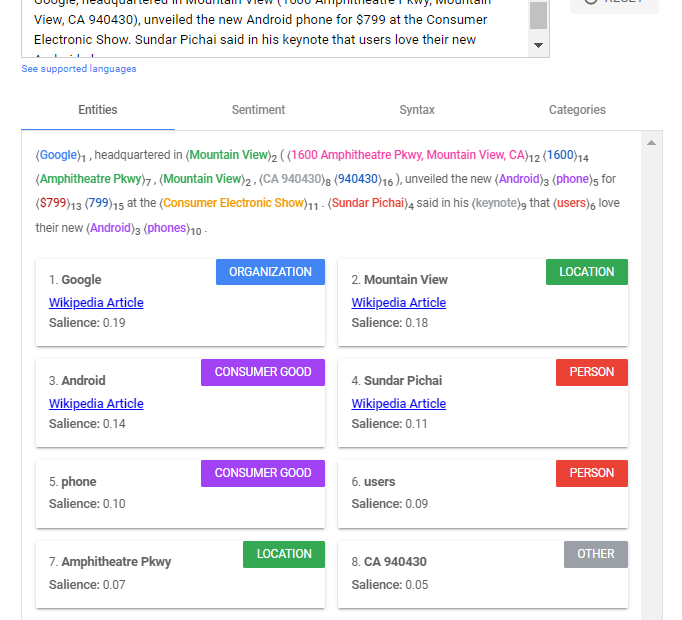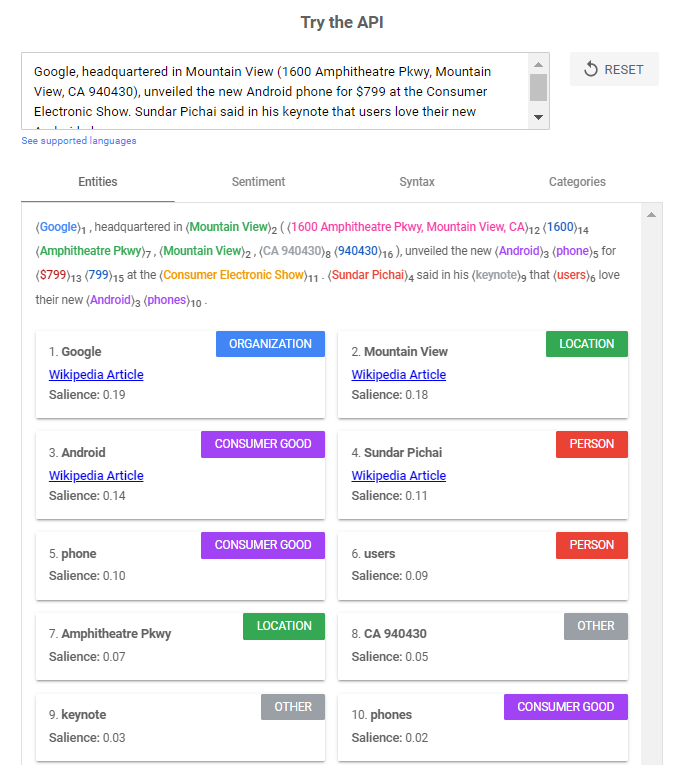Artificial intelligence (AI) is revolutionizing how companies operate and create value. As an experienced data scientist, I have seen firsthand the transformative impact of AI across industries. According to McKinsey, nearly 70% of companies reported increased revenues after adopting AI in 2020.
However, developing custom AI solutions from scratch requires significant data, expertise, and time. This is where AI APIs come in – they provide access to ready-made AI models via simple interfaces. Instead of building from the ground up, you can integrate capabilities like natural language processing (NLP), computer vision, and machine learning through AI APIs.
Let‘s explore the top 3 use cases of AI APIs with real-world examples:
1. Natural Language Processing for Text and Speech Analysis
NLP enables machines to comprehend, interpret, and generate human language. According to Markets and Markets, the NLP market is projected to reach $80 billion by 2026.
NLP powers a myriad of applications:
- Chatbots for conversational AI using techniques like dialog management.
- Sentiment analysis to extract emotional tone from text data.
- Document summarization to auto-generate abstracts.
- Content moderation to detect policy violations in user-generated content.
And many more use cases across sectors like finance, healthcare, retail, and education.
Google Cloud Natural Language API
The Google Cloud Natural Language API allows you to easily apply Google‘s powerful NLP models to analyze text and extract information like:
- Entities (people, places, etc.)
- Sentiment
- Categories
- Syntax
In the demo above, Google‘s NLP extracts key entities and sentiment from a text snippet. This could help analyze customer feedback or restaurant reviews, for example.
According to Google, the Natural Language API has over 5 million users globally, processing over 500 billion words daily.
2. Computer Vision for Image and Video Analysis
Computer vision focuses on digitally processing visual data from the real world. According to Reports and Data, the computer vision market will exceed $15 billion by 2023.
Applications include:
- Inspection – detect defects and anomalies in manufactured goods. This helps reduce waste.
- Surveillance – recognize faces and objects in video feeds for security.
- Healthcare – identify tumors, lesions, and other clinical abnormalities in medical scans. This assists doctors in diagnosis.
And many more in sectors like retail, agriculture, and autonomous vehicles.
Microsoft Azure Computer Vision API
With the Microsoft Azure Computer Vision API, you can analyze images and video for:
- Objects
- Faces
- Brands
- Text content
- Moderating explicit/offensive material
For example, an e-commerce company could use this API to detect products and text in images to power visual search for online shoppers.
According to Microsoft, the Computer Vision API now has over 1.5 million users and processes over 14 billion transactions per month.
3. Machine Learning for Predictive Analytics
Machine learning focuses on constructing algorithms that can learn from data to make predictions or decisions without explicit programming. According to Valuates Reports, the machine learning market is projected to reach $209 billion by 2027.
Applications of machine learning include:
- Predictive maintenance – forecast equipment failures before they occur.
- Algorithmic trading – automate trading decisions by analyzing market data.
- Fraud detection – identify suspicious transactions by learning normal vs anomalous patterns.
- Recommendation engines – suggest relevant products/content to users based on past behaviors.
And many more in sectors like manufacturing, finance, insurance, retail, and more.
IBM Watson Machine Learning API
The IBM Watson Machine Learning API provides a full set of tools to build, train, and deploy machine learning models. With this API, you can:
- Upload data to train models.
- Tune and optimize models for improved accuracy.
- Deploy models via REST APIs.
- Monitor and manage models in production.
For example, a bank could use this API to develop ML models for real-time fraud detection and risk assessment.
According to IBM, the Watson Machine Learning platform processes over 30 billion transactions per month on average.
Combining AI and APIs Unlocks New Potential
Integrating AI capabilities through APIs offers notable advantages over building custom AI solutions from the ground up:
Faster time-to-value: Get started quickly by leveraging pre-trained models rather than developing them in-house. This allows you to deliver ROI faster.
Lower costs: The pay-as-you-go pricing of most AI APIs is cheaper than hiring data scientists and allocating computing resources for custom development.
Flexibility: Mix-and-match different API services to meet your specific needs rather than relying on an in-house monolithic system.
Scalability: Most AI API providers scale automatically as your needs grow. This removes infrastructure limitations.
Upgrades: API providers continually upgrade their models and infrastructure. This allows you to benefit from the latest advancements.
However, effectively integrating APIs with internal systems and data requires API management skills. You need robust version control, security, monitoring, and reliability to realize the full benefits.
AI Is Transforming API Testing
As companies adopt more APIs integrated with AI, testing and quality assurance becomes critical. However, manual testing of complex APIs is expensive, slow, and limited in coverage.
This is where AI can help automate API testing to:
- Cut costs by reducing manual efforts.
- Accelerate test cycles by executing tests in parallel.
- Expand coverage for more robust validation.
AI techniques like natural language processing, computer vision, and machine learning enable auto-generation of test cases, data, and scripts. AI augments rather than replaces human testers by handling repetitive tasks.
According to Markets and Markets, the AI testing market will grow from $350 million in 2019 to over $1 billion by 2024. Top testing tools like Testim and Functionize are incorporating AI to disrupt traditional QA.
AI APIs from providers like Google Cloud, Microsoft Azure, and IBM Watson allow you to quickly integrate advanced capabilities like NLP, computer vision, and machine learning. Top use cases range from analyzing text and visuals to powering predictive analytics. Combining AI with traditional APIs unlocks new potential through faster time-to-value, lower costs, and increased flexibility. Furthermore, AI is transforming API testing by boosting automation, efficiency, and coverage. Across industries, leading companies are leveraging AI APIs to drive innovation and harness the power of artificial intelligence.

